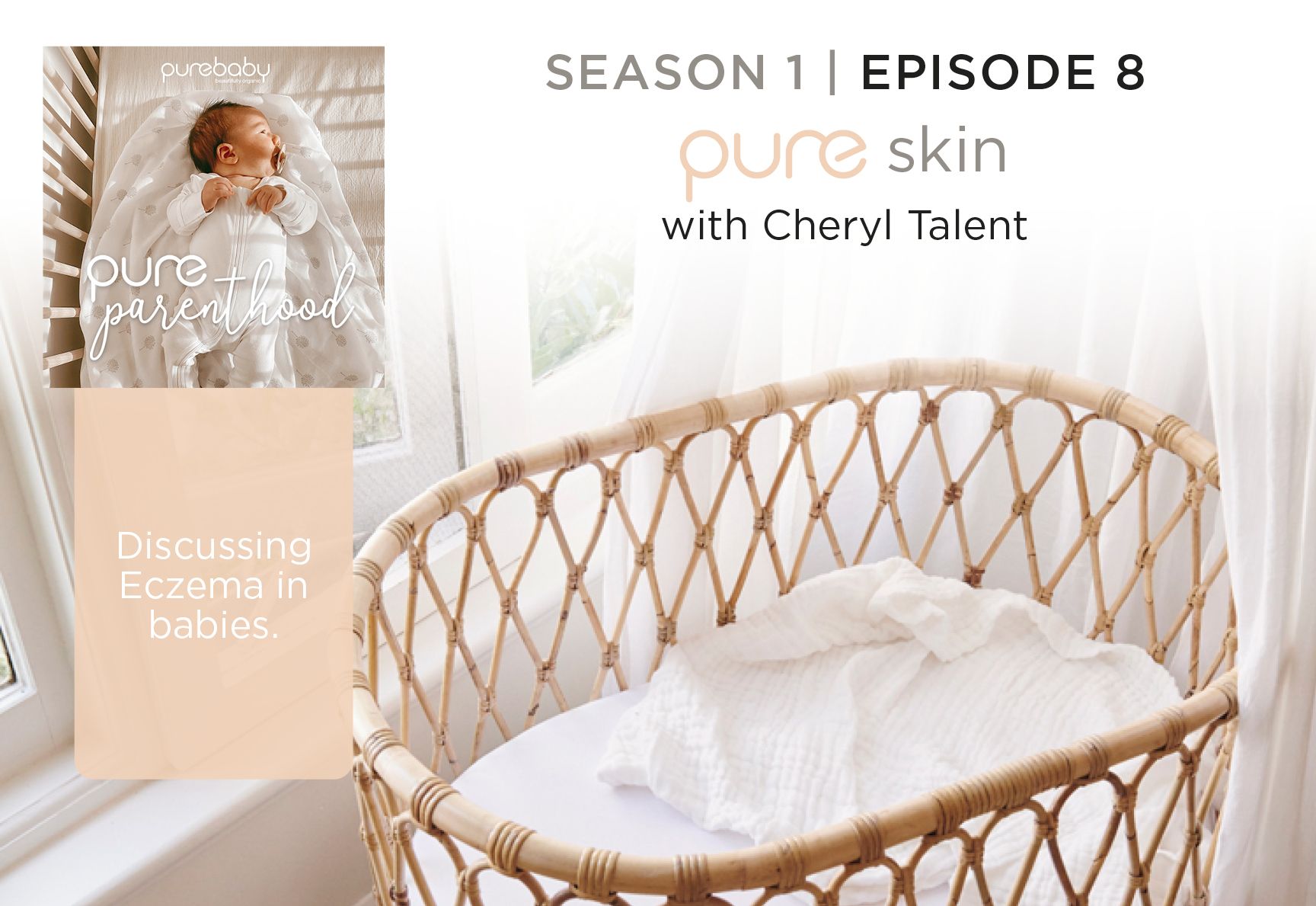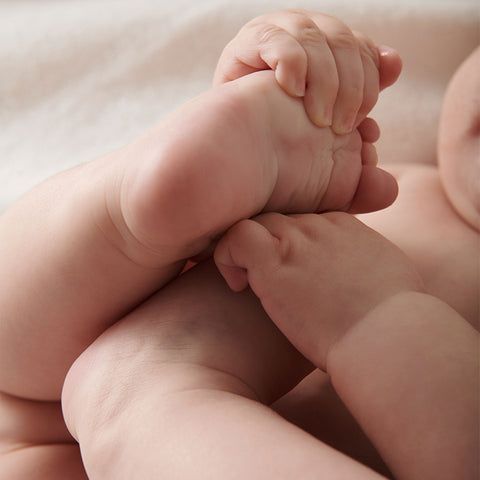
Why Choose Organic Cotton For Your Baby?
4 min read | 2 September 2019
New In
Essentials
Clothing
Accessories
Shop By Gender
Shop By Size
Collections
Baby
Clothing
Accessories
Shop By Gender
Shop By Size
Collections
Nursery
Care
Play
Kids
Clothing
Accessories
Shop By Gender
Shop By Size
Collections
Care
Play
Gifts
Baby Gifting
Kids Gifting
Shop By Price
Shop By Event
Shop By Gender
Sale
Sale
Shop By Gender
Learn
Education
Resources
Pre-Loved
Rewards
8 min read | 27 September 2020

Cheryl discusses Eczema in babies, how to manage it, help prevent it, and understand some of the most important triggers.
“As part of my role at the EAA, I speak to many pregnant women and new mothers and try to educate them in preparation for if, and when, their baby may develop eczema. We discuss how we can try to prevent it and how best to treat it. There still is no cure for eczema, but for most people, management is achievable.”, says Talent.
Management of eczema during pregnancy should be very similar to when the sufferer is not pregnant. We know that for some women, hormonal changes they go through during pregnancy can cause the eczema to flare up, and for others it can completely go away. If you are unlucky enough to experience a flare up, normal treatments should be maintained, like using your hypoallergenic skin products and even using topical steroids if necessary. Pregnancy is stressful enough without worrying about managing your skin!
We still don’t know precisely what causes eczema and there is no cure as of yet. The likelihood of babies developing eczema can be very much dependent upon their genetic predisposition, although even then, it is almost impossible to know. It is estimated that If one parent has eczema, there is up to a 50% chance of the baby developing eczema. If both parents have eczema, the likelihood increases to up to an 80% chance.
Another factor which can contribute to developing eczema is the environment. We are all becoming a bit more sensitive to our environment and there are more toxins in the air and water as well as preservatives in our food.
One of the factors that can help with prevention is taking a daily probiotic from 7 months of pregnancy. This probiotic, Lactobacillus rhamnosus, in studies has been shown to reduce the incidence of eczema in new babies by up to 75%.
Babies are born with inbuilt immunity protection from their mother, which wears off between 2-4 months of age. Typically, this can coincide with babies beginning to cut teeth, which can be a trigger for eczema to develop.
Another trigger for babies can be changing to formula from breast milk. If this remains problematic, you may need to speak to your GP about using a formula specifically designed for sensitive babies.
Also, when introducing solids, follow the recommended guidelines but only introduce one new food at a time. If you notice a reaction, stop that food for now and reintroduce it a few weeks later. For some reason, babies with eczema have a slightly immature digestion system which catches up to normal when they hit between 2 and 3 years of age.

If your baby does develop eczema, the following tips can help you manage their skin condition:
Firstly, obtain a proper diagnosis from your GP to make sure that you are treating eczema and not another skin condition, ensuring you are using the right treatment.
Don’t be afraid to use the prescribed treatment e.g. a topical steroid cream – many people are scared about using this treatment, even though it has been around for many years. When used correctly (in short term bursts), this treatment can be used safely long term. However, it is only part of the treatment. Using correct skincare products such as a suitable moisturiser etc. is equally as important.
Don’t listen to other people’s suggestions as this can be detrimental to your management, every case should be treated uniquely.
Don’t be embarrassed – tell people that your baby has a skin condition which you are managing.
Try not to get too stressed about the condition, as this will flow through to the baby – if you stay calm this really helps the baby. For most babies, if you can prevent infection of the skin you are doing a great job, as the eczema will flare up and down especially if they are teething. Work with the flares.
Use skin sensitive/hypoallergenic products only and always patch test a new product before applying in a larger area. For very itchy skin, a great tip is to put your moisturising cream in the refrigerator – this numbs the skin very quickly to assist in subsiding the itch. Not scratching or rubbing the skin will help it to heal.
Choose loose natural fibres, such as
organic cottonor bamboo, for clothing to layer on and off, as eczema sufferers can get really hot and you want to avoid over layering your baby.
Testing for allergies may be helpful as this gives you a tool to help avoid triggers
Look at your daily routine. This may mean tweaking something that can be helpful. For example, increase your use of moisturiser or moisturising every nappy change. Eczema management is often not about changing a big thing, but a few small things.
Invest in some dust mite protective coverings for your babies’ bed. These limit their contact with the dust mite droppings, which can impact flare ups.
Make sure their sleeping environment is cool and not too dry. This helps retain moisture in the skin.
This article was written by Cheryl Talent, in conjunction with episode 8 of Purebaby’s podcast, Pure Parenthood. Cheryl is the President of the Eczema Association of Australia Inc (EAA). To learn more about EAA visit their website or call 1300 300 182. They also have a special Babies & Eczema Information Sheet – if you would like a copy please send an email to: help@eczema.org.au.
Sign up to Pure Love Rewards and get $10 off your first online order, earn points every time you shop and more!